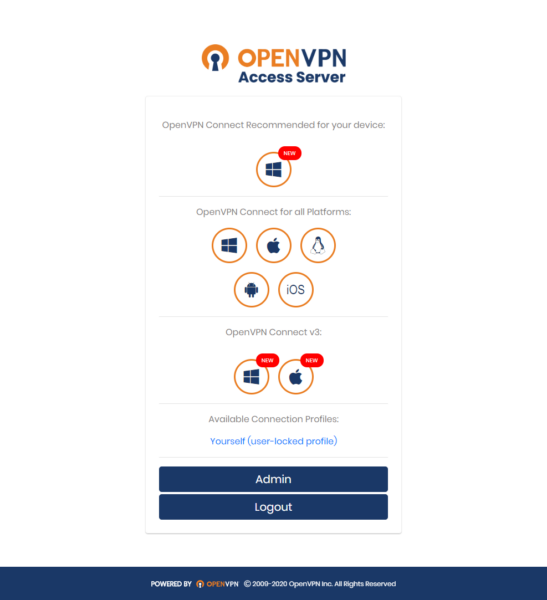Brief Introduction to OpenVPN
OpenVPN is a versatile and widely-used open-source VPN (Virtual Private Network) software that enables secure communication over the internet by creating encrypted tunnels. Originally developed by James Yonan in 2001, OpenVPN has evolved into one of the most trusted and adaptable VPN solutions available today. Its robust security protocols and flexibility make it an ideal choice for various applications, from personal privacy to enterprise-level security.
Detailed Overview of OpenVPN
OpenVPN operates on a client-server architecture, where the client establishes a secure connection to the server using SSL/TLS protocols. This connection can bypass firewalls and other network restrictions, allowing users to access restricted content and ensuring anonymity online. Key features of OpenVPN include:
Key Features of OpenVPN
- Security: OpenVPN employs industry-standard encryption algorithms like AES (Advanced Encryption Standard) to ensure data confidentiality and integrity.
- Flexibility: It supports a wide range of operating systems, including Windows, macOS, Linux, iOS, and Android, making it accessible across diverse platforms.
- Customizability: Users can configure OpenVPN to suit their specific needs, such as choosing encryption levels, authentication methods, and tunneling protocols.
- Scalability: OpenVPN can accommodate large-scale deployments, making it suitable for enterprise environments with multiple users and complex network infrastructures.
Types of OpenVPN
OpenVPN offers several deployment options, each with its unique advantages and use cases:
| Type | Description |
|---|---|
| Access Server | A simplified solution designed for small businesses and individuals, offering easy setup and management through a web-based interface. |
| Community Edition | The free, open-source version of OpenVPN, providing full control over configuration and customization for advanced users and organizations. |
| Cloud VPN | Hosted OpenVPN solutions that leverage cloud infrastructure for scalability and ease of deployment, ideal for businesses with dynamic VPN needs. |
Ways to Use OpenVPN
OpenVPN can be utilized for various purposes, including:
- Securing Remote Access: Enable secure connections for remote workers accessing corporate networks from outside locations.
- Bypassing Geo-Restrictions: Access region-locked content and websites by connecting to servers located in different countries.
- Enhancing Privacy: Protect personal data and online activities from surveillance and tracking by ISPs (Internet Service Providers) and third parties.
- Securing Public Wi-Fi: Safeguard sensitive information when using public Wi-Fi networks at airports, cafes, and hotels.
Challenges and Solutions with OpenVPN
While OpenVPN offers robust security and versatility, some challenges may arise:
- Configuration Complexity: Setting up and configuring OpenVPN servers and clients may require technical expertise, especially for advanced customization.
- Performance Overhead: Encryption and decryption processes can introduce latency, affecting connection speeds, particularly on low-bandwidth networks.
- Firewall Compatibility: Firewalls and network restrictions may interfere with OpenVPN connections, requiring adjustments to firewall settings or the use of specialized protocols like UDP.
To address these challenges, users can:
- Simplify Setup: Utilize graphical user interfaces (GUIs) and setup wizards provided by OpenVPN Access Server or third-party VPN management platforms.
- Optimize Performance: Adjust encryption settings, choose lightweight encryption algorithms, and optimize network configurations to improve performance.
- Use Obfuscation Techniques: Employ obfuscation methods to disguise VPN traffic and bypass deep packet inspection (DPI) by firewalls.
Main Characteristics and Comparisons
| Characteristic | OpenVPN | PPTP (Point-to-Point Tunneling Protocol) | L2TP/IPsec (Layer 2 Tunneling Protocol/IPsec) |
|---|---|---|---|
| Security | Strong encryption | Weak encryption | Moderate encryption |
| Platform Support | Wide range of platforms | Limited support | Widely supported |
| Configuration | Highly customizable | Limited customization | Moderate customization |
| Performance | Moderate to high | High latency | Moderate latency |
Future Perspectives of OpenVPN
As technology evolves, OpenVPN is expected to continue adapting to meet the changing demands of cybersecurity and privacy. Potential future developments may include:
- Integration with Blockchain: Exploring the integration of OpenVPN with blockchain technology for decentralized and tamper-proof VPN infrastructures.
- AI-driven Security: Leveraging artificial intelligence (AI) and machine learning (ML) algorithms to enhance threat detection and mitigation capabilities.
- Quantum-Safe Encryption: Developing quantum-resistant encryption algorithms to safeguard VPN communications against future quantum computing threats.
VPN Applications Associated with OpenVPN
OpenVPN serves as the foundation for various VPN applications, including:
- VPN Gateways: Securely connect geographically dispersed networks and facilitate secure communication between remote offices and data centers.
- VPN Clients: Enable individual users to establish encrypted connections to VPN servers for remote access and online privacy.
Resources for Further Information on OpenVPN
- OpenVPN Community Forums
- OpenVPN Documentation
- OpenVPN Access Server Documentation
- OpenVPN GitHub Repository
By leveraging OpenVPN’s robust security, flexibility, and scalability, users can enhance their online privacy, overcome geographical restrictions, and safeguard their data against unauthorized access and surveillance. As a cornerstone of modern cybersecurity infrastructure, OpenVPN continues to play a vital role in protecting digital privacy and enabling secure communication in an increasingly interconnected world.


